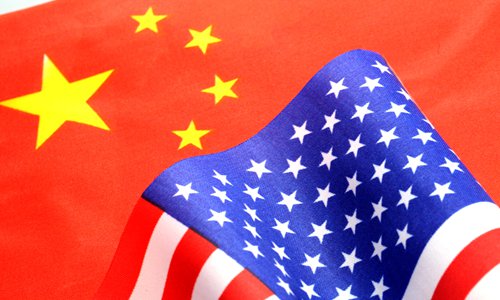HOME >> OPINION
World development hinges on an open China
By Ruan Zongze Source:Global Times Published: 2019/6/23 18:13:40

Photo: IC
As this year marks the 40th anniversary of the establishment of diplomatic relations between China and the US, bilateral ties have encountered turbulence. China is in its golden age since modern times, while the world is undergoing profound changes unseen in a century. China will never shut the door on the world, nor will it ever live in fear.
Since the two countries forged their relationship, trade volume in goods grew 252 times from $2.5 billion in 1979 to $633.5 billion in 2018, with bilateral investment reaching almost $160 billion, benefiting both sides as never before.
The world's two largest economies are intertwined. Although having experienced ups and downs in the past 40 years, China-US relations have never stopped advancing. Cooperation benefits both sides, while confrontation offers negative results for either side - a set rule for bilateral ties.
The US government pursues "America First" policies, and has adopted unilateralist and protectionist viewpoints. It has repeatedly brandished the baton of tariffs, provoked economic and trade friction, and cracked down on China.
To gain more bargaining chips, the US has continued to exercise long-arm jurisdiction over Chinese high-tech enterprises such as Huawei in the name of safeguarding "national security." It has also attempted to form global cliques to cut off supplies to Huawei.
This raging trade war reflects US anxiety over China's peaceful development and its efforts to offload its own problems on others.
Some in the US believe now is the last chance to contain China. They feel it is imperative to adopt the old methods used against the Soviet Union and Japan during the Cold War to resist China's development. However, China is neither the Soviet Union nor Japan and is prepared for aggressive US behavior.
There are also rational Americans who believe China is not an enemy. Jeffrey Sachs, professor and director of the Center for Sustainable Development at Columbia University, said that "China is not the source of our economic problems - corporate greed is."
US industrial associations and hundreds of companies have issued statements, railing against raising China tariffs while urging the government to get trade talks back on the right track.
China's rapid rise has made itself the target of international forces. When faced with such a grim situation, China should be the visionary, remain calm, and never retreat or become secluded due to external pressure. China needs to be vigilant against narrow nationalism.
China has constantly experienced international pressure since its founding 70 years ago.
The Iron Curtain was underway when the People's Republic of China was founded in 1949. In the late 1980s and early 1990s, the Soviet Union dissolved, and Eastern Europe experienced political changes, and the West regarded China as the next target.
The volume and quality of China's economy have increased since reform and opening-up. China's GDP for the first time reached 90 trillion yuan ($13.25 trillion) in 2018.
As the world's second largest economy with the largest foreign exchange reserves, China has contributed more than 30 percent to world economic growth. The country is the second largest importer and is the major trade partner with over 130 countries and regions.
China has entered into a new era and stage of reform and opening-up and is consistent with the times as it represents the inevitable route of development.
China's door of opening-up will not be closed and will only open even wider. The China-proposed Belt and Road Initiative is a landmark project and a platform for mutually beneficial cooperation within international society. China stands on the right side of history by defending multilateralism and safeguarding international order based on rules.
Unilateralism and trade protectionism cannot stop economic globalization from advancing. The reckless US faces opposition from many Western countries including its allies. The US and Europe have had increasingly bigger disputes on trade issues, climate change, and the Iran nuclear deal. European Council President Donald Tusk said, "With friends like that (the US), who needs enemies."
A survey from the European Union Chamber of Commerce in China showed that European companies still have faith in the Chinese market - 56 percent of those surveyed have considered expanding business in China in 2019.
More voices in international society are calling for the acceptance that China will continue to grow and become stronger. The US must accept that Asian countries are capable of producing competitive products. It should not threaten companies that are commercial rivals.
China's future must be determined by China. This is a vital period for China's development and will not change its opening-up policies. China needs a more open environment to achieve high-quality development, and the world needs a China that is more open.
The author is a research fellow and executive vice president of the China Institute of International Studies. opinion@globaltimes.com.cn
Posted in: VIEWPOINT